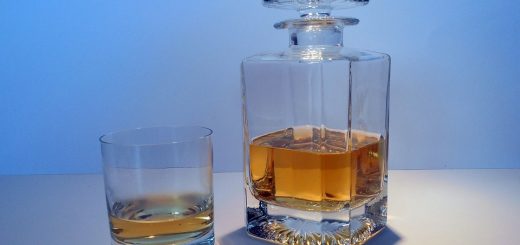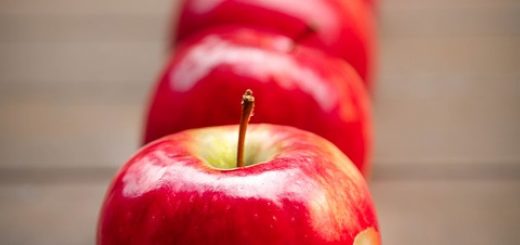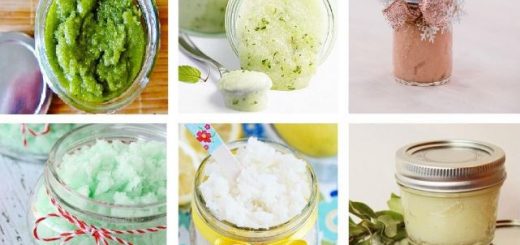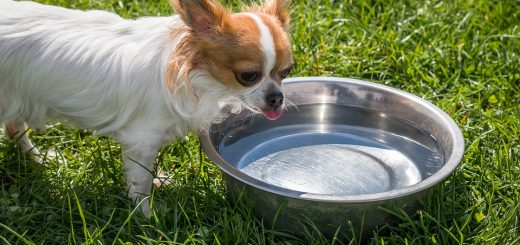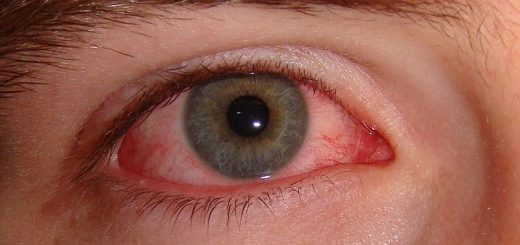35 Home Remedies for Abrasions
Skin abrasions are a slight injury or wound of the topmost layer of the skin. It is a familiar condition that anyone can experience. You can see this every day mostly with children because of their active behavior. An abrasion to your skin is a wound only to the skin surface and sometimes below the surface, but it doesn’t affect your bone. Sometimes you may have some skin scraped away and other times the abrasion may be due to an allergic reaction.
Characteristics of an abrasion are that the skin looks torn or worn off with associated pain, swelling, oozing of fluid, bleeding, tenderness, red and itchy skin. Some parts of the body get more scratches than others. Usually, they heal within two weeks of the initial injury or abrasion.
Normally, wounds have the tendency to heal on their own. Depending on the severity of the wound, healing can take about four to five days or a week. Sometimes, it can leave a scar on the skin called alternatively as avulsions, when the wound is much deeper.
Common Causes
Damage on the topmost layer of the skin or abrasion happens when there is a sudden contact of an exposed skin and rough surface.
Children’s skin is naturally more delicate than adults. This is one reason they are more susceptible to abrasions. Moreover, the active lifestyle of young people can cause them to be easily injured. Activities like running, skating, baseball or soccer.
The skin can get an abrasion with continuous scratching after an insect bite, bee sting, or allergy that causes itchiness.
Symptoms of Mild and Severe Cases
The following are some symptoms of mild skin abrasions:
- Swelling and pain
- Soreness on and around the affected area
- Scorching feeling and redness of the skin
- Itchiness
Worsened Abrasions can lead to the following conditions:
- Fever
- Deep pain and swelling
- Extra bleeding
- Muscle weakness
Home Remedies for Abrasions
-
Garlic
Garlic is a widely used remedy from ancient time to heal cuts, scrapes and sores. It consists of an allicin which is an antimicrobial agent. Allicin aids as a natural protection against infection, but be cautious when using fresh garlic. It can cause skin irritation and should not be left on it for more than twenty to twenty-five minutes.
Blend together three fresh garlic cloves with one cup of red wine. Let it stand for two to three hours before straining. Spread it over with a clean cloth to the well-cleaned wound one to two times a day. Discontinue use if the treatment causes skin irritation.
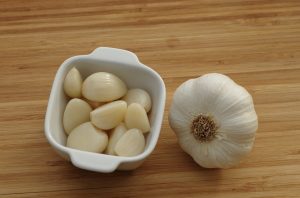
Garlic cloves and whole garlic.
-
Coconut oil
Coconut oil is an excellent home remedy for skin abrasions. It has natural anti-inflammatory, therapeutic and nourishing properties. Besides from its ability to cure and prevent infection, coconut oil can aid as a strong protector against dust and bacteria. Coconut oil is an effective remedy for many health problems, too.
Apply enough amount of coconut oil on the affected skin. Let the oil naturally dry on the skin without rinsing off. Repeat this two or three times a day until the skin is fully restored.
-
Onion
Onion has antimicrobial properties called allicin like garlic. Moreover, onions don’t cause skin irritation like the garlic. Begin by blending half an onion. Stir in honey and put it on the affected area. You should not let it stay for more than an hour. Do these three times a day to get the best results.
-
Goldenseal and Myrrh Salve
Goldenseal and myrrh ointment is good for healing scrapes and wounds. To attain a better result, apply after the wounds were drained and closed. Mix together 1oz. powdered goldenseal, 1 oz. powdered myrrh gum powder, 4 oz. extra virgin olive oil and ¼ oz. beeswax. Once all of the ingredients are thoroughly mixed, rub the paste on your abrasions.
-
Juniper Leaves and Berries
Juniper leaves and berries have been used to treat infections and wounds since ancient times. On the other hand, yarrow herbs are very helpful in cleaning wounds and helping blood clot faster in cuts and have been used traditionally.
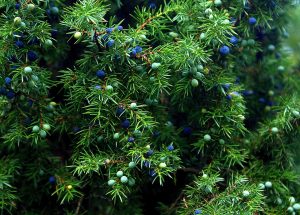
Juniper berries and leaves
-
Clean the Abrasion
The abrasion has to be cleaned thoroughly before putting on any home remedies or medicinal treatments. You should carefully take off dirt and debris which is in the affected area. This will dramatically enhance the healing process. It also safeguards from infection to occur later.
Tenderly clean the abrasions with antiseptic soap and cool water. Pat dry with a clean cloth. Put on antiseptic cream over the affected area to prevent it from drying, and then cover it with a bandage. Remember to replace the bandage at least once a day.
-
Herbal Tea
Echinacea, wormwood, Oregon grape and goldenseal are very effective for abrasion. Apply topically to the cut to avoid infection.
-
Vinegar
Vinegar is known as a natural astringent. So, it is efficient in cleansing wounds and also can protect it against bacteria and virus. Vinegar can help enhance the healing process of the abrasion.
Mix a ratio of 1:3 of vinegar and water. Apply on the affected skin using a cotton swab. Rinse it off with warm water. For best result, do these two times a day.
-
Comfrey
Comfrey has drawing qualities that are very helpful for pulling out infection from damaged skin wounds. It has soothing properties and enhances the healing process. The comfrey ointment can draw out poison from an insect or spider bites. Comfrey has been conventionally used for healing wounds, hemorrhoid relief, eczema and other rashes on the skin.
Ingredients
1 oz. crushed plantain leaves
1 oz. powdered comfrey root
4 oz. extra virgin olive oil
¼ oz. beeswax
Instructions
- Put the oil into a pot, heat it no higher than between 80 -100 degrees.
- Stir in the herbs.
- Slow cook it for about 12-24 hours on warm settings on a crockpot. 24 hours proved to be best.
- Using a colander line a couple layers of unbleached broadcloth or muslin. Pour in the mixture.
- Drain and squeeze out and gather as much oil as possible. The herbs in the cloth will be dry and powdery. This can be used to fertilize the garden.
- Wipe out the crock pot and put back the herb-infused oil.
- Gradually add the beeswax and let it melt.
- Turn the heat off when it is in a liquid form. Test for consistency by putting a small amount on to a plate. It should be like that of Neosporin. Additional beeswax may be required in warmer climates.
- Store the ointment into small jars. This will last at least three years in the refrigerator or several months at room temperature.
This homemade ointment is much healthier for the skin than other commercially bought ones.
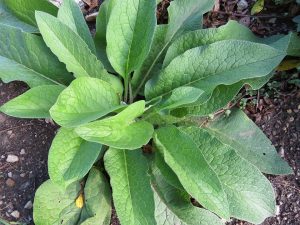
Comfrey herb
-
Vitamin C
Vitamin C cannot be applied directly to the abrasion, unlike other home remedies. You should increase your daily vitamin C intake in your diet because this will boost the immunity and accelerate the healing process.
To add up your vitamin C intake, make sure to consume vitamin C rich foods like strawberries, tomatoes, citrus fruits, and broccoli. You can also take Vitamin C supplements. If you decide to take supplements, make sure to take them as directed on the packaging.
-
Lavender Oil
Lavender oil is greatly accepted as one of the most effective home remedies for skin abrasions. It has the capacity to disinfect the affected areas and thereby promote the healing.
Boil thyme and water to make a tea. Put on some drops of lavender oil to the tea. Use the mixture to lightly apply to the abrasions. Repeat this two or three times a day until the abrasion is healed.
-
Aloe Vera
Aloe Vera has antiseptic and anti-inflammatory properties. It has been traditionally used as useful ingredients in home remedies to cure damaged skin. Aloe Vera has a gel that is helpful in optimizing the skin tissue’s healing process. It is also a natural skin moisturizer.
Extract the gel inside the aloe vera leaf. Spread the gel gently on the affected areas. The gel can be left on the skin or cover it with a bandage. Remember to change the bandage with the gel inside at least two or three times daily. Repeat as necessary until the wounds are healed.
-
Vitamin E
Vitamin E is well known as a strong antioxidant. This makes it an effective home remedy for skin abrasions. It can help treat and heal wounds easily. Vitamin E is useful in limiting the chance of getting scars after the skin abrasions.
Make sure to increase your daily consumption of food rich in vitamin E. Foods like avocados, olives, spinach, and other leafy green vegetables. Concurrently, use some vitamin oil to regularly apply to the affected area. This will ensure that it is being absorbed into the skin. Repeat this two or three times a day after the skin abrasion is cleaned completely.
-
Drinking Water
Water is vital to maintaining health and enhances healing process in time of illness and injury. Try to drink at least eight glasses of water daily to be as hydrated and healthy as possible. Though skin abrasions may be a minor problem, it is very important that it properly gets treated and healed. This is to avoid infection from happening.
Together with other home remedies for skin abrasions, remember to keep you hydrated and the skin moisturized. Make sure to take at least eight glasses of water daily. This is crucial for the healing process of the damaged skin.
-
Turmeric
Turmeric is an herb which is rich in antiseptic and antibacterial properties. It has a well – known remedy for the injured skin. It is useful in enhancing the healing process and also reduces the possibility of infection.
Mix turmeric powder and water to make a paste. Put this gently on the affected area. Let it dry naturally. Do not cover the skin. To get the best result, repeat this two or three times daily.
-
Plantain
Plantain is a proven treatment for damaged skin. It helps in relieving itchiness and pain. It also promotes the healing process. This plant is also an efficient home remedy for other skin conditions like minor burns or cuts.
Crushed plantain leaves until you make a paste. Gently spread the paste on the affected area. After the area gets dried naturally, rinse it off with water. Do this the process two or three times every day for a few days until the situation gets remedied.
-
Neem
Neem consists of a considerable amount of antiseptic and anti-inflammatory qualities. You can use the leaves to effectively prevent infection and optimizes healing especially in a damaged skin.
Take out the juice from neem leaves and mix with some turmeric powder to make a paste. Apply the paste on the affected area and let it dry for a few hours. Then, rinse off with warm water. Repeat this two or three times every day until the skin I healed.
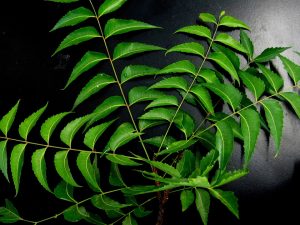
Neem leaves
-
Honey
Honey has also been used since ancient time in treating wounds. It is an effective antiseptic, anti-inflammatory agent that does lots of good to your health. Moreover, honey can also prevent the chance of scarring the wound. For home remedies, honey is a wonderful treatment for skin abrasions.
After cleansing the area, carefully apply some honey on it. Cover with a bandage. Take the bandage off after one hour and wash it with warm water. Repeat this two or three times daily to quickly treat skin abrasions.
-
Dock Leaves
Make a lotion from dock leaves. This lotion can be applied to treat the skin abrasion. You can also use the leaves directly on top of the wound.
-
Calendula
Calendula is an efficient home remedy for skin abrasion. It is rich in antimicrobial and anti-inflammatory properties. The calendula flower can also be used to the production of collagen thereby helps to stimulate the healing of the affected area.
Take out the juice by squeezing some of the calendula flowers. Carefully spread the juice on the wound and let it dry naturally. Repeat this two or three times each day to get optimum result. Additionally, you can easily use over-the-counter calendula cream or lotion to quickly treat the abrasions.
-
Lard and Horehound
The ointment that is made from lard and white horehound is an efficient home remedy in treating skin abrasions.
-
Parsley Mix
The mixture of crush marigold flowers and parsley or plantain leaves is very good for skin abrasion. Crush them together to form a paste. Apply this topically on the wound. Do this until your abrasions heal entirely.
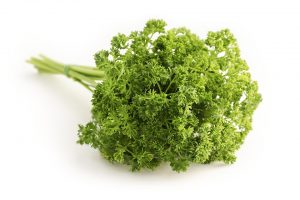
Fresh parsley
-
Hydrogen Peroxide
Hydrogen peroxide helps to treat abrasions by carefully using it to wash the affected area. You may want to dilute this mixture before using is, as this will make it less likely that it will sting.
-
Petroleum Jelly
Petroleum Jelly is an effective treatment for skin abrasion. You should apply liberally over the affected areas. It is recommended that whenever you accidentally damage your skin, you should immediately wash it off with a disinfectant soap. Then apply petroleum jelly on it. By doing this, you are keeping the affected area moisturized and easy to heal. This will result for the skin to heal itself and return to its normal state.
-
Vitamin K
Using a moisturiser or medicinal cream that have vitamin K as an ingredient will help to heal your abrasions faster than other lotions. Read the ingredients on healing lotions to discover if it contains vitamin K or not.
-
Potato Slices
If your abrasions are bleeding, rubbing a potato slice on the area may be able to help. Cut a potato into slices and rinse it off before applying it to your abrasion. This will help to both stop any current bleeding you may have and prevent future bleeding.
-
Toothpaste
Adding toothpaste on a cleaned abrasion can help to relieve the itching. This works especially well when your abrasion is due to an allergic reaction or a bug bite or sting. Simply apply the toothpaste to the abrasion and cover it with a bandage to keep it in place. Replace the bandage and toothpaste two or three times each day to get the best results.
-
Almond Oil
Almond oil can work as a sort of disinfectant. Rub diluted almond oil on your abrasions to clean them out. It is best to do this as soon as you can after getting the abrasion.
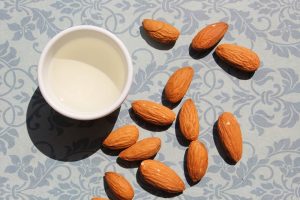
Almond oil is clear, unlike many other oils
-
Egg Whites
Whip some egg whites and apply to the abrasion. It stops the abrasion from getting worse or infected. Do this when you first notice the abrasion. After using this home remedy, rinse out the abrasion with clean water.
-
Rose Water
Rose water can also be used to clean out any abrasions you might have. To use this home remedy, dip a cotton ball in rose water and apply it to the abrasion. Do this as soon as you can after noticing your abrasion to get the best results.
-
Iodine
After cleaning the wound you then pour some Iodine on the cotton ball and then rub on the abrasion. This helps prevent infection and scarring.
-
Witch Hazel
This is used to clean and disinfect. It has ingredients to reduce inflammation and alleviate pain. Apply via a cotton ball soon after you notice your abrasions.
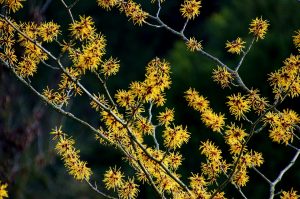
Witch hazel plant
-
Salt Water
Salt acts as a disinfected. You mix with water and apply to the abrasion via a cotton ball. It is best to do this as soon as you notice the abrasion. However, if the salt is not diluted in the water properly, it may sting a little when put on the abrasions.
-
Turpentine
It is used to clean wound due to antiseptic use. Place a couple of drops onto cotton and place the cotton on the wound or abrasion and tape and leave it to dry. When it is dry, repeat the previous step. Do this until your wound is healed or until it no longer hurts.
-
Neosporin
Neosporin is available at your local pharmacy. You apply the cream to your wound or abrasion. Use this as directed on the packaging.
Which of these home remedies are you most likely to use? Comment with your answer below!
References
http://www.top10homeremedies.com/home-remedies/home-remedies-for-skin-abrasions.html
http://www.searchhomeremedy.com/top-5-home-remedies-for-abrasions/
http://www.searchhomeremedy.com/top-5-home-remedies-for-abrasions/
http://www.home-remedies-for-you.com/remedy/Abrasions.html

